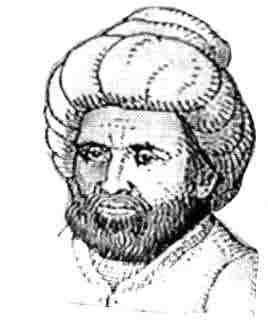| home | profile | classmates | university | info | math fun | assignment |

The treatise Hisab al-jabr w'al-muqabala was the most famous and important
x2 + 21 = 10x.
What is most remarkable is that in this case he knows that the quadratic
Halve the number of the roots. It is 5. Multiply this by itself
Now it is clear that al-Khwarizmi is intending to teach his readers
When you meet an instance which refers you to this case, try its
of all of al-Khwarizmi's works. In this book, which has given us the word
'algebra', al-Khwarizmi gives a complete solution to all possible types of
quadratic equation. Here is al-Khwarizmi's solution of the equation
has two solutions:
and the product is 25. Subtract from this the 21 added to the
square term and the remainder is 4. Extract its square root, 2, and
subtract this from half the number of roots, 5. There remains 3.
This is the root you wanted, whose square is 9. Alternatively, you may
add the square root to half the number of roots and the sum is 7.
This is then the root you wanted and the square is 49.
general methods of solution and not just how to solve specific examples.
This is clear from the was that he continues:-
solution by addition, and if that does not work subtraction will.
In this case, both addition and subtraction can be used, which will
not serve in any other of the three cases where the number of roots is to be halved.
Know also that when, in a problem leading to this case, you have multiplied
half the number of roots by itself, if the product is less than the number
of dirhams added to the square term, then the case is impossible.
On the other hand, if the product is equal to the dirhams themselves,
then the root is half the number of roots.